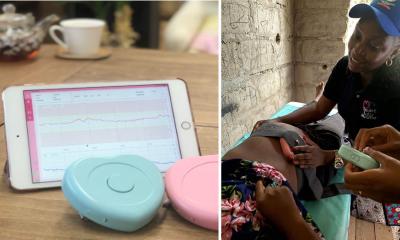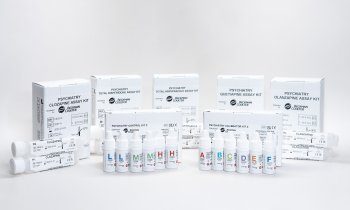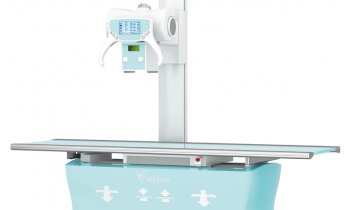Perinatal medicine
Interview with Prof. Klaus Vetter MD, director of the Obestetrics Clinic at the Perinatal Centre, Vivantes Hospital Neukölln, Berlin, Germany.

In September the 5th International Congress for Perinatal Medicine, was held in Croatia. In December, the German Society for Perinatal Medicine will hold its 22nd German Congress for Perinatal Medicine (www.perinatal-kongress.de). In a timely interview with Professor Klaus Vetter MD, director of the Obstetrics Clinic at the Perinatal Centre, Vivantes Hospital Neukölln in Berlin, and Congress President of the 22nd German Congress for Perinatal Medicine, we initially asked:
How is this field defined?
Perinatal medicine is an interdisciplinary medicine for mother and child, the professor explained. It comprises the period before, during and after birth. This includes obstetrics, as part of gynaecology in general, and neonatal medicine as part of paediatrics and adolescent medicine. It also includes anaesthetics for pregnant women and newborns.
Prenatal diagnostics is diagnostics for mother and child during pregnancy. This comprises taking of blood pressure, urine testing to monitor kidney function as well as determining the mother’s abdominal girth, and ultrasound scan diagnostics for the unborn child. The most commonly found problems in unborn children are growth problems, macrosomy and growth retardation; the most common problems affecting the mothers are, respectively, diabetes, high blood pressure and pre-eclampsia.
What does the future hold for prenatal diagnostics, particularly in the European economic area?
‘We can assume that, in the future, prenatal diagnostics will be increasingly available during earlier stages of pregnancy, and that triage (determining future treatment and monitoring required to ascertain whether a pregnancy is progressing normally or not) will often be available in the first trimester.
From a general point of view, this may mean that women will feel increasingly encouraged in their decisions to become pregnant, because early triage appears to enable a closely monitored, ‘customised’ pregnancy. This may lead to a higher acceptance of pregnancy in general. However, it is difficult to say what effects this is likely to have on the European economic area.
What are the structural prerequisites for adequate perinatal care within the constraints of the diagnosis related groups (DRGs); integrated care provided by surgeries and hospitals (IV) and medical care centres (MVZ) in a European comparison?
The principle in Germany is that all pregnant women are entitled to the necessary perinatal care. This is set out in maternity guidelines developed by the Federal Joint Committee (www.g-ba.de), made up of providers (members of the German Hospital Association) and those funding healthcare costs. Currently, the DRGs do not actually support the care and treatment of pregnancy complications sufficiently. IVs and MVZs currently have no particular bearing on perinatal medicine. During the congress, a panel discussion will address this subject.
‘The Small Child - causes, diagnostics, birth and postpartal therapy’ is also on the agenda. At what stage in development do you talk about a ‘small’ child who is at particular risk?
A child is considered underweight if it does not fall within the percentile curves, i.e. distributions of length, weight and head circumference at a certain age, and if its weight, depending on age, falls below the 10th percentile. If the child’s weight is below the 3rd percentile, we talk about a significant growth retardation. To assess the situation - and ensure that the child is in no acute danger - it is vital to determine the cause. Modern biophysical diagnostic procedures, such as ultrasound and, in particular, non-invasive, functional examination procedures such as Doppler scans, have proved most suitable for this.
If there is a proven risk of complications, the birth should take place at a suitably specialised unit for mother and child; in very difficult cases this should be in a specialist perinatal centre. When choosing the date and place of birth we also need to consider the envisaged postpartal therapy, so that the lives of both child and, as the case may be, mother, are not endangered.
During pregnancy, birth and post birth - what does interdisciplinary co-operation entail?
Apart from pregnancies and births where no anomalies are detected, but that have interdisciplinary support, there are pregnancies where interdisciplinary co-operation is of utmost importance and can be life-saving. The specialist fields are prenatal medicine and obstetrics, neonatal medicine and anaesthetics for pregnant women, as well as the newborn.
Concepts in Germany - at least within the scientific societies and associations - orientate themselves on European models. For gynaecology and obstetrics this means the European Board and College of Obstetricians and Gynaecologists (EBCOG - www.ebcog.org). Large differences between countries are increasingly balanced through these international organisations - even when there might be very different conditions in individual cases. The 22nd German Congress for Perinatal Medicine, in December, will also contribute to this progress.
Contact: knk.geburtsmedizin@vivantes.de
02.08.2006











